Saying Thank You: What To Give
It’s cliche to say, but your wedding day is one of the best days of your life. For it to truly come together and be everything you’ve ever dreamed of, you enlist the help of your friends and family. To be completely frank, being asked to be part of a wedding comes with a lot of pressure. There is no such thing as perfect, but you’re enlisting people you love to help you come as close as possible. How can you possibly say thank you to those who basically achieved the impossible? It’s a tricky task. But worry not, there are some unique ideas out there.
It depends on the people in your party, but there are a plethora of ideas floating around the internet! However, there’s no need to scour the web to find the most unique options. Here are 3 simple gift ideas to give your most sincere thanks: 1. A Heartfelt Letter
When is the last time you’ve received a handwritten note? Sometimes the most sincere thanks comes from the heart. Look into purchasing nice stationary that matches the theme of your wedding. Using thick paper will ensure that your letter can stand the test of time, and hopefully prevent the note from ripping and your words from fading. A note is sometimes a gift that keeps on giving. Words can be saved and read repeatedly. The best reason? Words are priceless and mean more than any material gift!
2. Stylish Shades
There’s nothing wrong with giving material items as a thank you either. However, they should be practical so your people can get use out of them for days, weeks, months, and even years to come! Sunglasses are one example of a practical gift. While they of course can be used on the day of your wedding, they can be used well beyond too! Don’t waste your money on the cheap plastic glasses either. Your thank you should come in the form of quality sunglasses that aren’t plastered with your wedding hashtag. Having the ability to buy sunglasses in bulk takes the hassle out of gift giving, and you can get a pair for everyone in one purchase!
3. A Soothing Scent
We all know wedding planning can be a stressful time. Give the gift of relaxation with their favorite scent of candle! Better yet, write a custom message to be printed on the label. It’s a unique way to express your thanks and encourage your friends and family to enjoy some quiet time. If you really want to make it a truly relaxing gift, make it a basket! Fill it with bath bombs, epsom salts and a few face masks. A little can go a long way, and after your girls have spent so much of their time focusing on you, return the favor and encourage them to have some well deserved “me time.”
What are some of your ideas for gifts? Whether they’re from personal experience or this post just sparked some inspiration, I’d love to hear what you have in mind!
0 Comments
When An Introvert and an Extrovert Fall in Love
From the moment we met, it hasn't been a secret: You're the extrovert, and I'm the introvert.
You're the outgoing guy with the gift of gab who tells stories that are way too long.... but make everyone laugh. I'm the girl who would rather just listen, observe, and take it all in. You're not afraid of new social situations, new people, and new adventures. I'm the one who holds back, who is afraid to go out on a limb, who likes her small, core group of people. I'm the one who frets about social situations while you just go with the flow. You're the loud to my quiet, the fun-loving to my rational. You're the party to my nerd, the funny to my serious. We are opposites in so many ways. Yet, I'm so thankful that the introverted, shy girl at the art table found the courage to talk to the rebellious, chatty blond boy across from her. I'm so glad that we didn't let our differences get in the way because looking back, you changed me. You helped me. You made me better. I know that love is a two-way street. We've both helped each other overcome our shortcomings and grow. We've both contributed to this life we've built together. But today is about how you made me who I am, how you helped me chase my dreams, and how your extroverted nature brought out the best in my introverted self. You challenge me every single day to laugh a little more and worry a little less. I'm always in my head about what others think or if I'm making a good impression, but you remind me of what matters most. You show me that it's good to be true to yourself and to not be afraid to own that truth. You show me that life is about connections and learning about others and that you don't have to be afraid to do that. You've pushed me outside of my comfort zone. When I was once a super shy girl afraid of really any interaction with others, you taught me to be confident and to find my outgoing side. It is because of your encouragement that I found enough courage to chase my true dreams of teaching and of being an author. Thanks to you, I've been able to embrace my introverted strengths and share them with others. I've found enough of a voice to project my ideas, my values, and my passions for others to hear. It is with you by my side that I'm able to talk about my books and to even do a weekly podcast about our lives together. Your gift of gab helps make up for my shortcomings. You bail me out in situations you know I'm not comfortable. You push me to be outgoing when I need to be and you don't let me shy away from situations just because they scare me. You teach me to be brave, to be adventurous, and most of all, to have fun on this crazy journey called life. In the past few years, I've come out of my shell and found a power in connecting with others. I've realized that it's okay to be extroverted sometimes, even as an introvert. You've helped me find balance. Above all, you've helped me embrace my quirks and my fears. Your love for me shows me that I am not damaged or broken or less. Even though we're opposites in so many ways, we're the same in the important ways--in our love for each other that has carried us through so much, in our admiration for each other, and in our sense of fun we find together. So to my extroverted husband, thank you. Thank you for pushing me to be a better version of myself. Thank you for helping me embrace who I am while challenging myself to grow, to change, and to morph into the person I've become. Thank you for being my voice when I can't, and thank you for helping me be my own voice when I can. Marriage is about sacrifice and it's about learning. I am so glad I get to walk this journey with you, my opposite in so many ways but my soulmate all the same. I love you.
If you are looking for a way to feel more connected and spend more time with your family, set aside some quality time everyday to enjoy a meal together. Studies show that it is extremely beneficial for children and parents to eat together, and increases mental and physical health, and is linked to positive behavior.
Why Is Eating Together Important?
Researchers have found that eating together inspires healthier emotions and habits. Connect with your kids around the table by asking about their day and starting a conversation about healthy eating habits. This encourages engagement and builds strong conversation skills through natural socialization practice, and has been shown to increase a child’s vocabulary. Coming together for meals is especially helpful to children with attention deficits and learning disabilities, giving them a safe and comfortable environment to practice their social skills. Family meal time can also be a moment away from school/work stress, social media, and other distractions, so power off electronic devices, and use the time to disconnect.
As we all know, adolescence can be a challenging season of life to navigate, and it’s easy for children and teens to hold onto their everyday stresses. Having a specific time devoted to talking over the day gives children and young adults a platform to express themselves. According to a survey, American teens said they were most likely to talk with their parents during dinnertime, as opposed to any other time during the day. Family meal time gives parents and children of all ages the opportunity to have a few moments in the day to converse and have an open dialogue with each other. This alone has been linked to lower rates of depression and suicidal thoughts, as well as putting young adults at a lower risk of abusing alcohol and other harmful substances. Getting Your Family To the Table
Life moves at a million miles an hour, and there just doesn’t seem to be enough hours in the day for everyone's responsibilities and commitments. However when you make eating dinner or breakfast as a family a routine, and the table a comfortable and welcoming place to gather, your entire family will make dining together a priority. An important aspect of family meal time is the atmosphere that you create within your dining space. When designing your dining area, you should have dining furniture that is warm and comfortable and bring in colors like browns and purples to invoke a calming, natural atmosphere. Fresh flowers and festive table mats are also great features to create a balanced space, perfect for energetic conversation. For more interior design inspiration, check out pinterest and instagram from companies like Arhaus who have detailed room designs on their pages. Family photos and decor pieces with affirmative mantras are also great to hang in your dining area help to set the intention for your family oriented and positive space.
Aside from creating a welcoming environment, as a parent, you’ll also want to be understanding and approachable when you engage in conversation with your children. If conversations continually become hostile or turn into lecture sessions, your children won’t feel comfortable to have an open dialogue. The conversation doesn’t have to be completely centered around the kids and their experiences. Use it as an opportunity to share the challenges that arose during your day as well. Being open, and sharing details and successes as they relate to adult life will enhance trust, and encourage children and young adults to share details of their own day. Dinner table conversation starters like these are also great talking points that can help you connect with your child and allow them to get to know their siblings and parents on a deeper level as well. Guest article by Molly Kay No One's Love Is Instagram-Worthy All of the Time
With some sweatpant-material shorts I wore yesterday and my hair in a greasy ponytail, I plop some sauerkraut and hot dogs into a crock pot. When my husband gets home from work, we'll probably sit in silence eating our meal that is embarrassing to admit to let alone photograph for social media as I'm a terrible cook (I know right now the mashed potatoes are going to be lumpy and the hot dogs will probably be under or overcooked). We'll sit and play on our phones, read, play video games, and get through another Monday in mundane adult life.
In truth, it's a far cry from the swoonworthy couples all over Instagram or the #forever pictures we see on our social media platforms. And, in truth, if I thought too much about it, I might be pretty down in the dumps about the fact that our relationship's Instagram-worthy moments are few and far between....and even the ones worthy of Instagram probably aren't getting any awards anytime soon. I'm a romance author who is married to the boy she met at 12 at the art table. We've been together ever since, and we've now been married almost 7 years. We are the typical opposites-attract couple, and he is my everything. Our simple life is truly more than I could've asked for. Still, in comparison to social media couples, our love seems lackluster, dull, or even non-existent. Romantic getaways are few and far between, and most nights, romance is defined by a quick kiss goodnight or an "I love you" in between feeding the dog and doing dishes. Here's the thing, though: I truly believe that no one's love is Instagram-worthy all of the time. I truly believe that all relationships, all real ones, probably have more non-Instagram-worthy moments than anything. We all have the moments cuddled up on the couch in clothes we wouldn't go out of the house with, too lazy to move a muscle let alone make a romantic move. We've all had those classless dinners, those moments of boredom, and even those moments of sheer rage. My husband and I are no exception. There are plenty of times we plan a nice date or a trip and he is a total asshole... or I, admittedly, play the asshole role. There are plenty of moments we thought would lead to this picturesque, romantic scenes that led to nothing but misery in a rain storm, long lines, and a realization that the experience we thought would be revolutionary turned out to be overrated. We've had copious weeknights of boredom, of survival, and of just trying to get by anyway we can. Romance is out the window on these nights. In short, our lives are far from the tropical fantasy getaways, candlelit dinners, caviar, and smiling, perfect people on social media. Our love is rarely an Instagram-worthy moment. However, I think that's okay. I think if we are all being honest, the moments we post on Instagram or Facebook or our social media of choice are just a snapshot, a blink in the true relationship we live. In reality, no one's love is perfect. No one's life is a string of perfect snapshots. We all have our struggles. We all have our weaknesses. We all have moments in our love stories where we feel like giving up. So just because your love story isn't always Instagram-worthy doesn't mean it's any less real. Love isn't perfect. Love doesn't have to be a constant photograph opportunity. This is the realization that led me to writing the books I write.... ones that showcase real love, the gritty, raw, candid kind that isn't always perfect. Because when we start to realize that no love is perfect, we can give our own love a little slack and start appreciating it for what it is.... beautiful in its own right. Join me in celebrating candid love. Follow me on Facebook where I talk about our "real love" moments and where every Saturday, my husband and I chat love, marriage, and adult life on our show, Chapters & Checkpoints at 7pm EST.
In the transition from living on your own to living with others, there will be changes that occur as you adjust to sharing a space with someone else. When it comes to sharing a space with your partner, you want to make this next chapter in your relationship one that is smooth and painless. Taking big steps in any relationship come with its own set of challenges, but every milestone is meant to signify the growing strength of your bond and love for eachother. The process of moving in with your partner should be exciting, and there is so much to look forward to. Before you take your first steps, you’ll want to do your research though, and have a few conversations with your new roommate.
The 50/50 Split
In most roommate situations, there is an agreement to split rent, utilities and finances down the middle. When you move in with your partner, you’ll have to decide how you’ll evenly split your bills, rent, and utilities like water, electric, and cable. If you agree to split finances equally with your partner, you want to make sure to pick an apartment or home that you are both comfortable affording as well. Keep this in mind when house hunting, and if you enlist a realtor for help, be sure to be honest about your price range. That way you stay within budget and avoid overspending, and the financial anxiety that comes with it. Also, don’t be afraid to talk openly with your partner about your annual income, any looming debts, and your spending habits, to help determine better delegate how much each of you will contribute to bills and other living expenses. Splitting the bills is a great way to start out, before taking more serious steps in your relationship, and living on a shared income.
Be Open About Expectations
When you are making decisions about moving in, you’ll want to be have honest discussions with your partner about your expectations in your new home. Discuss cleaning habits and preferences to set yourselves up for success. Adjusting to another person’s lifestyle may be one of the biggest challenges you face, and confronting them about issues that are bothering you will be even harder. The key is to approach confrontation with your partner without hostility, and addressing the direct issue that is upsetting you. For example, you might want your partner to wash the dishes more often, but maybe they need a little hint or push to do it. Don’t assume your partners a mind reader, and be patient and respectful during this learning experience for both of you.. You’ll also want to be clear about your preferences surrounding guests and pets. All types of pets can make great companions, but they are also a huge responsibility. When you are sharing a space with your partner, you’ll want to make sure your partner is on board with that level of responsibility before you decide to bring home a furry friend.
The Stuff: Yours, Mine and Ours
With the merging of lifestyles, also comes the merging of your “stuff,” which can be a challenge if you don’t stay organized. Prior to moving in, you’ll want to create a detailed list of belongings that you both have in order to avoid any duplicate furniture and appliances. This will also help you pinpoint what items you could sell to make a little extra money to spend on your new home. Now that you are living together, you’ll also have to discuss what colors and themes you’ll want to introduce into your new home. Take some time to look through catalogues or home decor blogs like this one to give you some ideas and tips on how to style your space to reflect both of your interior tastes. As you slowly bring your home together over a period of time, you might want to invest in a few key pieces like a living room furniture set or a kitchen table that you love, and center the rest of the decor around these pieces. If you don’t want to buy new right away, check out apps like craigslist and community Facebook pages where members sell quality used furnishings at affordable prices.
Time is the Most Important Thing in Your Relationship
I almost said “no.”
The laundry was piling up and dishes were stacked like a Jenga tower in the sink. The vacuum needed run, and we had a ton of errands we should’ve accomplished to get through the week without drowning in adult responsibility. Bills to pay, groceries to buy and organize, nooks and crannies to dust, closets to organize—we had so many things we could’ve been accomplishing on that Sunday. There were so many thing that seemed vitally important. Because of those mountains of responsibilities, I almost said “no.” But looking back, I’m so glad I didn’t let the rational me take over. I’m so glad I said “yes” when my husband decided on a whim to use a vacation day, stay home from work, and take me to see The Greatest Showman. He convinced me to put down the chore lists, to put aside all of the tasks that seemed so important in the moment, and to just spend time with him. The typical me would’ve argued about saving vacation days, about getting things done, and about not having the time to waste at a movie. But for 2018, I’ve vowed to myself to spend less time worrying and to spend more time appreciating those around me. I’ve vowed to reorganize my priorities and to take some moments for myself. So I said “yes,” shoving aside the unfolded basket of laundry and moving the area rug over the dirt on the living room floor. I cleared everything off my to-do list, unaccomplished, and spent the day with my husband. It was a simple day, really. We lounged on the couch before going to see the movie—which is absolutely stunning, by the way. We laughed and talked, really talked. We put aside technology for a while and just spent time with each other, hand in hand. He didn’t whisk me away to some exotic locale. We didn’t have a flashy, overtly romantic day. To an outsider, the day probably seems like a waste of a vacation day. At the end of it, though, it was my favorite day, a day I know we’ll remember for years to come because we took time out of this insanely hectic race called adult life to do what was most important—spend time together. And, to me at least, that isn’t a waste of a day at all. Time is Finite, So Spend it Wisely
How do we quantify the value of a relationship?
Money? Sex? Loyalty? The number of “I love yous?” In the past few months, I’ve learned that those things are important, certainly, but that there’s something else even more important: Time together. My husband’s schedule changed a few months ago, which has limited our time. Work schedules, responsibilities, and daily living has pulled us apart against our choosing. It’s sucked in a lot of ways, but it’s also taught me an important lesson: It’s time that really defines a relationship. Not just the amount of time spent together but the quality... and how much you want to spend time together. In the past few months, we’ve learned that time spent together is what matters most. At the end of the day, folded laundry and neatly organized pantries don’t make a relationship great. Grand, expensive gestures and overtly romantic gestures don’t solidify the foundation of a marriage. It’s time spent together, no matter what you’re doing. We’ve come to realize all those days of sitting on the sofa together watching Netflix or eating grilled cheese sandwiches or just being together are the moments that really matter. They’re the moments that have solidified who we are together and made us strong. And, with our time together cut down, we’ve come to realize how much joy being together brings us... and how much we miss it. No matter what our situation, we are all working under a finite amount of time. Schedule changes, growing families, changing family dynamics, tragedies—all of these things can change the amount of time we have in the blink of an eye. Thus, no matter who we are or what our relationship situation is, we must learn to make the most of our moments together and do what we have to do to find the time to spend together. We must value our time with our loved one and make it a priority so we can solidify our relationship and find true joy. I’ve thankful that for us, the schedule change will hopefully be temporary. I’m thankful our time hasn’t been cut short from a bigger, more harrowing circumstance. Still, it’s taught me to never take time with my husband for granted and to appreciate every minute, every hour, every day. It’s taught me to prioritize the time we have together because it’s what truly matters. So today, put down the laundry if you have to. Cross of a few less-important things from your to-do list. Let your spouse take that vacation day, or cancel that appointment that doesn’t really matter. Find a few minutes, a few hours, a few days to spend together doing what matters most—appreciating each other, loving each other, and finding joy in the simple moments. Lindsay Detwiler is a contemporary romance author with Hot Tree Publishing. To learn more about her novels that celebrate sweet, genuine love stories, join her VIP Fan Club above. How was your day?
It's such a basic question, one so many of us toss around countless times a day. We ask our mailman, the barista at the coffee shop, or the random person we pass at work. It's a question that seems to carry so little weight. However, these days, that question carries a lot of weight in my relationship because, in many ways, it's been a chance for my husband and me to stay connected. For the past few months, we've endured vastly differing work schedules that only afford us a limited amount of time together a week. I won't lie--it's been crazy hard. I know there are so many other couples out there dealing with worse schedules: traveling jobs, military positions, and other circumstances probably keep other couples apart more than we are. Still, he's my absolute best friend, and the plain truth is: I miss all of our time together. I miss our random, Monday trips to Target. I miss our hour rants about our days right when I would get home. I miss our dinners together and our Lunchables on nights we didn't feel like cooking. I miss the constant companionship, the simple moments, the shared laughs. I miss him. Over the past few months, though, we've learned that to make love work, you have to choose to invest in it. Even though we don't have a lot of time together, the simple fact is we make time. He gets up at the crack of dawn with me to see me off to work, and I stay up super late to talk to him when he gets home. We both are running on "E" in many ways, our sleep schedules totally dysfunctional and lacking. But we do it, not because we're okay without our eight hours (we both are super grouchy without sleep), but because our time together is more important than a few extra hours. Sacrifice. It's something we've learned over the past few months. And we also stay in touch through texting. We make a point to send each other messages, to chat when we get a free moment. And, every single day, I get this text: How are you? It's a simple phrase, just a few words, but it's really become symbolic of who we are. He's not around for my day now. He's not here for me to vent or to share in the joys with. Still, even when he's not here, he still wants to know how my day was. He still takes the time to check in, to find out what's going on in my life, even if it has to be reduced to the words on a phone screen. These past few months have sucked in a lot of ways, but they've also reinforced the fact that keeping love alive is a choice--and it's not always about grand gestures. Keeping love alive is about simple moments, small gestures of sacrifice that go a long way. It's about choosing to find any and every way possible to stay connected. It's about showing care for the other person even when you can't physically be there. Most of all, it's about truly wanting to know how the other person is and caring enough to ask. How do you keep love alive throughout the drudgery of the work week? Have you ever dealt with different schedules? How did you keep the connection going? Join me on Facebook to keep the conversation going. Xoxo, Lindsay Detwiler
We can’t judge a love story by its couple.
“Wow, you two just don’t... go together.” It’s a comment my husband and I have heard from both polite company and strangers over the years. In some ways, I understand. We are complete opposites in our mannerisms, our personalities, and our tendencies. He is a rugged, bearded blue collar worker who hates reading, loves wearing the color black, and doesn’t care for fashion. I am a studious bookworm who loves everything pink, is a teacher by profession, and has way too many shoes. He is a free-spirit who doesn’t care for authority, while I’m a rule-following worrier. He’s spontaneous and extroverted; I’m a planning introvert. We are definitely the yin to each other’s yang. Still, it amazes me how so many people can judge our relationship without even really understanding us. We’ve been married five years now, but we’ve been together for over sixteen—we met at the age of twelve and have been together ever since. Our relationship isn’t perfect; I’d argue that none are. Nevertheless, we’ve found a depth in our connection and a fulfillment from being together that, in my opinion, is what marriage should be about. In short, we’ve found a happiness in our love and an appreciation for the journey we’ve walked together. Writing online, however, I’ve come to realize how quick we are as a society to pass judgments on everything and everyone, especially when it comes to love. We like to think we can categorize and generalize everything around us just from a quick glance. As a frequent writer about the topic of marriage, the “you two don’t go together” has been expressed in more depth and sometimes more viciously. I’ve received comments questioning the validity of my marriage, accusing us of being together for the wrong reasons, and ripping our connection apart. I’ve been accused of only marrying him for his beard—seriously—and he’s been accused of being controlling. We’ve been berated for not having kids, some claiming this clearly means our relationship isn’t strong. We’ve heard it all. As so many of us come to learn, the online world can be brutal in its judgments and comments. Although the online world is certainly a harsh representative of our society, even the “real world” isn’t always kind. I’ve come to realize how much we all tend to judge the relationships around us from our surface-level view of couples. We assume we know couples, for better or worse. We are haughty enough to think we can understand a couple’s relationship based solely on their public persona. There seems to be a constant need to judge each other’s marriages, relationships, and connections. The True Defining Elements of a Love Story
Like so many things in life, you can’t judge the true worth of a love story by what you think you know. Real love stories happen behind the public persona created by a couple.
Real love stories are quilts consisting of patches from various circumstances and memories. To judge a couple based on one image is to falsify the snapshots that make up who they are. To appreciate a relationship, you have to be able to see it in its entirety because in the end, isn’t the journey what truly builds a relationship? The struggle a couple walks together isn’t always apparent in their public interactions. You don’t know what they’ve been through hand in hand. You don’t know what they’ve earned and built together, what they’ve overcome.You can’t see any of that from the picture they show to the world. You can’t see what they’ve battled and survived in private by the way they hold hands. You can’t see the struggles, disappointments, and hardships they’ve faced by the way they walk beside each other. You can’t see the joys and connections they share by how good they look together. You can’t see the midnight dances in the kitchen over exciting news, the stolen kisses, or the sweet inside jokes shared by overhearing one conversation. You can’t see the sweet, simple, everyday moments from the way they glance at each other. Quite simply, you can’t understand who they are through a rash judgement about the foundation of their love based on outward appearances or assumptions. This idea can certainly go both ways. The couples you seem to think have it all don’t always. The couples who swoon over each other in public sometimes live a much darker persona at home. Just like in Big Little Lies, sometimes the public version of a couple is much brighter than the serious, dark truth hidden at home. Regardless, the point is this: you cannot possibly judge a relationship based on public appearance or outside knowledge of a couple. Moreover, real love stories aren’t about flashy shows of affection or romantic gestures. These do not define a couple. If it were that simple, love wouldn’t be such a complex emotion so many of us struggle with. Love is much more layered than a surface-level appearance. Real love is much harder to define because it’s a collection of moments, memories, events, feelings, and pathways. It’s an intersecting web of choices and situations that create an ever-changing relationship. In short, a couple can only be defined by the journey they walk together, a journey only they know and understand. Thus, we must remember that, at the end of the day, a love story is only owned by two people: the two people living it. The rest of us are just bystanders unaware of the true tale. Lindsay Detwiler is a contemporary romance author with Hot Tree Publishing. Learn more about her works here: http://bit.ly/2u42BjU Today, I welcome a guest post from Sylvia Smith. Sylvia Smith is a relationship expert with years of experience in training and helping couples. She has helped countless individuals and organizations around the world, offering effective and efficient solutions for healthy and successful relationships. Her mission is to provide inspiration, support and empowerment to everyone on their journey to a great marriage. She is a featured writer for Marriage.com, a reliable resource to support healthy happy marriages. Is it time to talk to the teenager in your life about love and relationships? Talking above love (or even worse, sex!) sounds like the kind of cringe-worthy chat most teenagers would much rather not have with their parents. But in fact, an honest chat about love is an important part of preparing your teen for their transition into adulthood, and a good way to teach them about healthy relationships and boundaries. Here are 10 reasons why you should be talking to your teens about love. 1. Teaching Them About Good Relationships Romantic relationship is a new territory for your teenager. Talking to them gives you the chance to teach them what good relationships look like. You can empower them with the confidence to say no to any relationship that is less than respectful, and educate them about having healthy relationships. 2. Warning Them About Signs Of Abuse Let your teen know what makes up an abusive relationship and be clear with them that they don’t have to accept any behavior they are uncomfortable with. Let them know that abuse isn’t only physical violence, but also covers put-downs, being pressured to do things they don’t feel happy with, or being steered away from family and friends. Look up some anti-abuse resources online and share them with your teen so they’ll be ready to spot any warning signs. 3. Setting Boundaries And Expectations Teenagers notoriously like to push boundaries – it’s all part of growing up. Now is a good time to talk to your teenager about your boundaries and expectations around love and relationships. Discuss curfews and ground rules with them. Be prepared to negotiate and listen to their concerns. Talk openly about when and how (or if) it’s ok for them to stay with a boyfriend or girlfriend, or have them stay over. 4. Defining Love vs Lust This isn’t about being puritanical or shaming your teen for normal impulses. But do talk to them about the difference between love and lust. Help them understand the importance of thinking carefully about major decisions such as how far to go with their partner, and when. Give them a good grounding in how to know whether a partner really cares for them, or is just looking for some fun. 5. Showing Them What Respect Looks Like Respect is the key to healthy relationships. Talk to your teen about respect. What does it mean? Show them what respect looks like in a healthy relationship: Talking kindly to each other, taking interest in each others lives, and respecting each others feelings, needs and boundaries. 6. Starting A Discussion About Preferences Figuring out everything about sexuality can feel like a minefield. Make things easier on your teenager by starting an open discussion with them and letting them know that it’s ok if they don’t have it all figured out right now. Reassure them that there’s nothing wrong with being bigender, agender, transgender, gay, or anything else. Let them know that no matter what, they’re just as perfect in your eyes. 7. Building Trust Between You Talking openly about love, sex and relationships is a great way to build trust between you and your teen. They’ll see that they can talk to you about anything and you’ll be there to listen and offer thoughtful advice. That sets up a healthy, trusting dynamic between you and your teen. When they’re navigating the ups and downs of love and need someone to help them, they will turn to you. 8. Showing Them How To Navigate Emotions Emotions are tricky when you’re a teenager. Suddenly you have all these intense feelings, and we’re sure you remember how dramatic situations can get when there are a few teens involved. Teach your teen about emotional self care and regulation and help them to know themselves and handle their emotions better. They’ll be better equipped for dealing with the emotions of first relationships and first love. 9. Teaching Them How To Stay Safe Love and dating aren’t always safe. You can let your teen know that without scaring them. Talk to them about staying safe,tell them to always keep an eye on their drink and make sure someone knows where they are. This is also a good time to chat with them about safe sex. 10. Being There For Them Talking to your teen about love lets them know that you’re there for them as they go through this exciting and turbulent time in life. By modeling respect and openness, you build trust and make it easier for them to come to you to share their joys and worries. Being a teenager is fun, challenging and tumultuous. Talk to the teenager in your life about love and give them the tools they need to form healthy relationships now and for the rest of their lives.  About the author: Sylvia Smith is a relationship expert with years of experience in training and helping couples. She has helped countless individuals and organizations around the world, offering effective and efficient solutions for healthy and successful relationships. Her mission is to provide inspiration, support and empowerment to everyone on their journey to a great marriage. She is a featured writer for Marriage.com, a reliable resource to support healthy happy marriages. By: Caleb AndersonCaleb developed an opiate addiction after being in a car accident. He’s in recovery today and wants to inspire others to overcome their addictions. He co-created RecoveryHope to help people with substance abuse disorders and their families. Read on to hear his amazing advice for couples affected by addiction. Alcoholism and drug addiction negatively affect relationships. When a spouse is an addict, the couple likely has poor or absent communication. The addict may be physically or psychologically abusive, unfaithful, or overly controlling. The addiction may create financial strain. Overall, the situation is stressful and lonely for the spouse that isn’t suffering from the addiction. If your spouse is an addict, you can try to find him or her treatment and find ways to heal together. But you also need to know when to walk away.
Getting Treatment While you can’t force your spouse into treatment, there are things you can do to help him or her realize the addiction is out of control and treatment is necessary. For starters, stop enabling your spouse. The only way for him or her to realize there’s an issue is to experience the consequences of the addiction in the fullest extent. If work or a family event is missed, don’t make excuses. When talking about the addiction and your concerns, be specific. Instead of saying, “You need to stop drinking because it’s unhealthy,” say, “Being drunk prevents you from attending dinner, and it’s hurting our marriage.” To that point, discuss the negative consequences specific to your marriage. Tell your spouse what will happen if he or she doesn’t seek help, but only say it if you mean it. Have other family and friends bring up the addiction with you. The more people involved, the bigger the impact, but the individuals should be people your spouse knows and trusts. Carefully time these meetings when your spouse is sober and calm. Ideally, it should be soon after an addiction-related issue has occurred so that a consequence is fresh in your spouse’s mind. Healing Together When you’re ready to mend the relationship, it’s advisable to get help from a counselor or therapist. Going through the steps to heal together will be difficult, but a trained professional can help the two of you to stay on track and achieve success. Even with help, it will be stressful and take a period of adjustment. You may need couples therapy along with one-on-one sessions. Outside of therapy, there are things you can work on to move your relationship into a healthier place. First, treat your marriage like it’s a new relationship. Everything changes after addiction issues, including you, your spouse, and your relationship. Go on dates again. Whether it’s once a month or once a week, make sure you have time alone together to bond. Having a healthy, positive living environment is also important in order to promote sobriety. This could mean finding a new place to live to boost your spouse’s recovery, or visiting with your spouse while they temporarily live in a halfway house if they are finishing up treatment. When disagreements arise, try to stay positive and avoid fights. If you need to take a break from the argument, then do so. Some issues are best discussed with your therapist, who’s an impartial third party. Every day, work on forgiving your spouse, but accept that it takes time to gain new trust. Calling it Quits Deciding to stay or leave is not an easy decision to make. Despite knowing that you’ve tried everything, that your self-esteem is shot, and that you’ve lost ample amounts of time trying to fix your spouse, you still love him or her. You worry what will happen to your spouse if you leave. Ending the marriage may make you feel like you’ve failed. However, consider the cost of staying. Your self-esteem, mental health, sense of well-being, and even physical health could be comprised. Abuse in a relationship should never be tolerated, whether it’s physical or psychological. Consider leaving if your spouse lies, cheats, or steals. If your partner continues to worsen despite your best efforts, it may be time to leave. If you have kids, consider how the addiction affects them and if staying is worse than leaving. Do you feel supported, appreciated, and valued? If not, it may be time to walk away. Remember that your life is also being negatively affected by your spouse’s addiction. There are ways for you to help your spouse to get treatment he or she needs, and if your spouse works on maintaining sobriety, the two of you can work on healing your relationship. However, you have to know when it’s time to walk away. You deserve a happy and fulfilling life. |
*As an Amazon Affiliate, I get a small fee for any books purchased through the links below.
Archives
May 2024
Categories
All
|

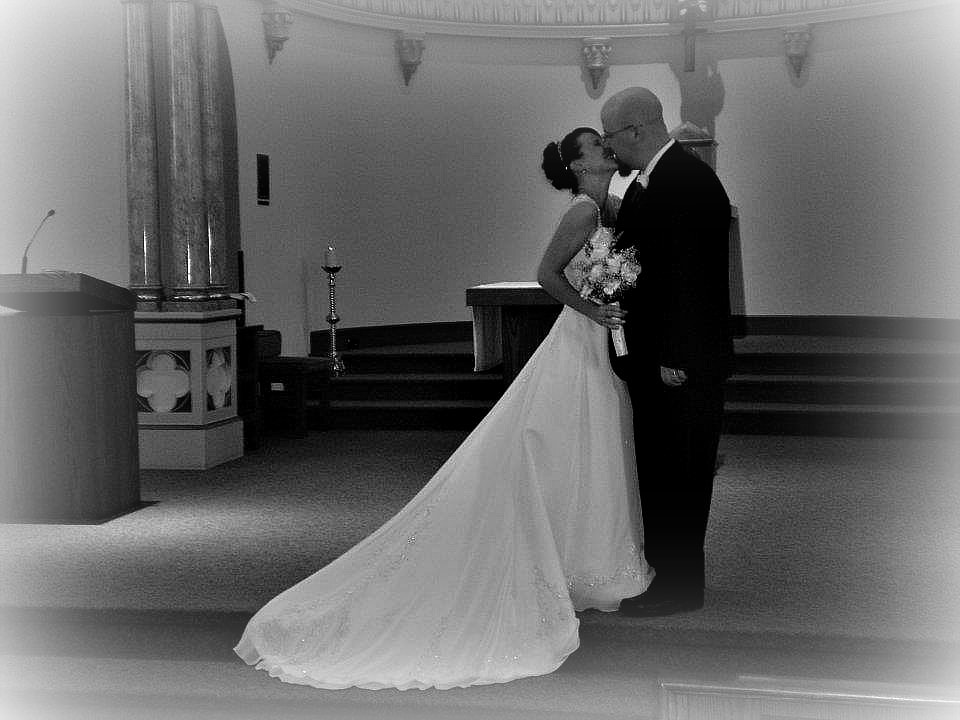
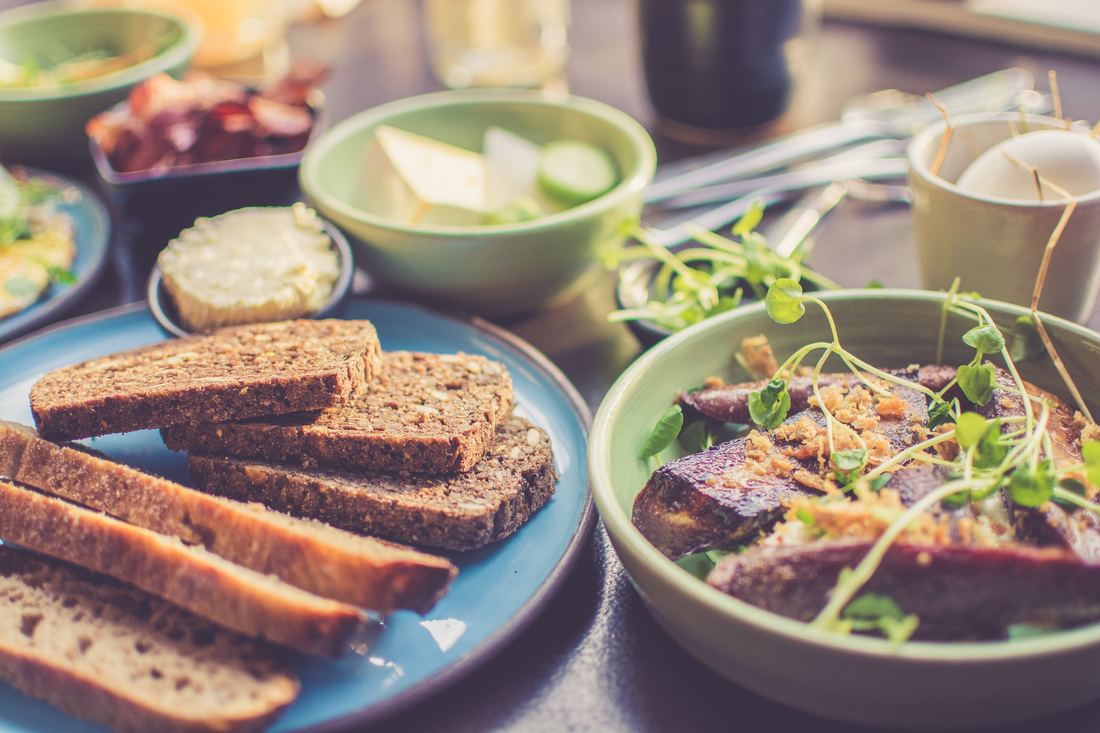

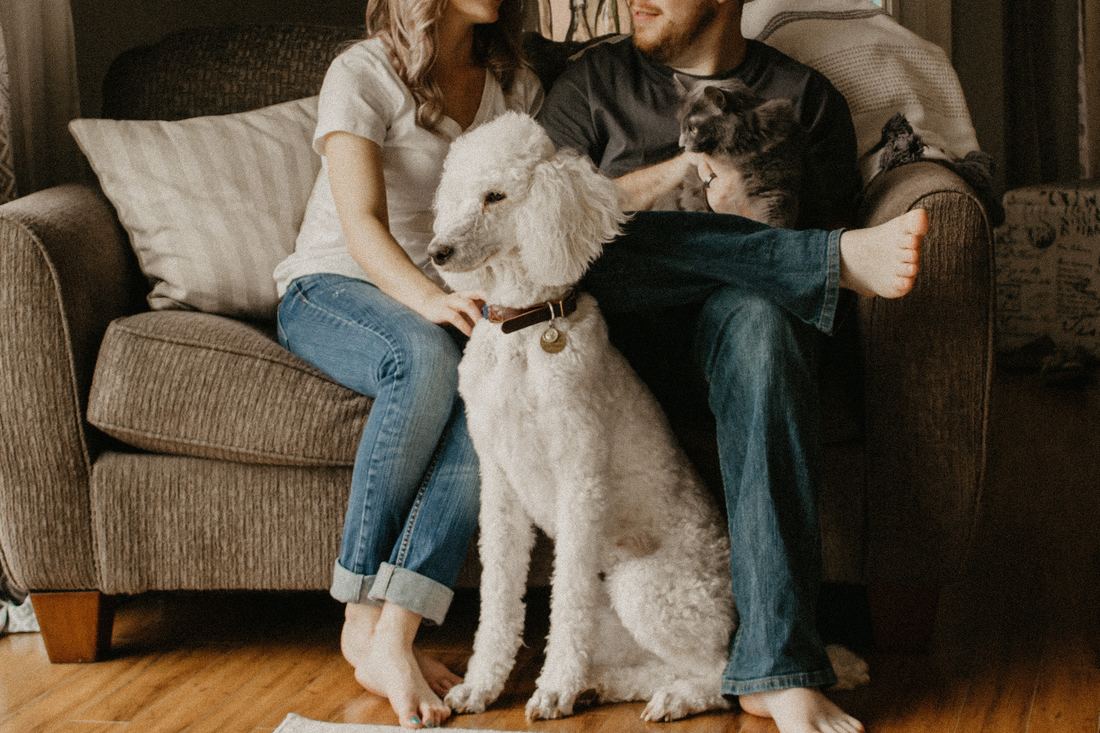

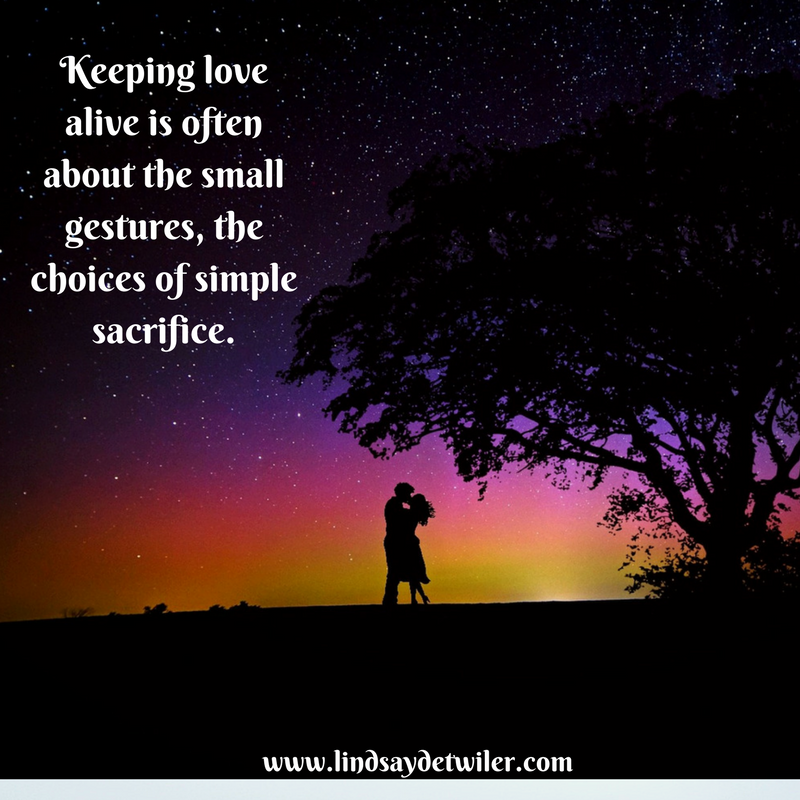











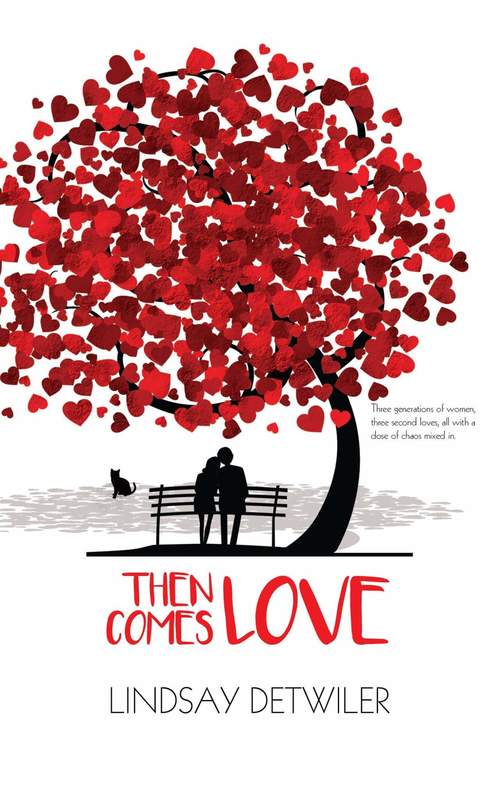






 RSS Feed
RSS Feed